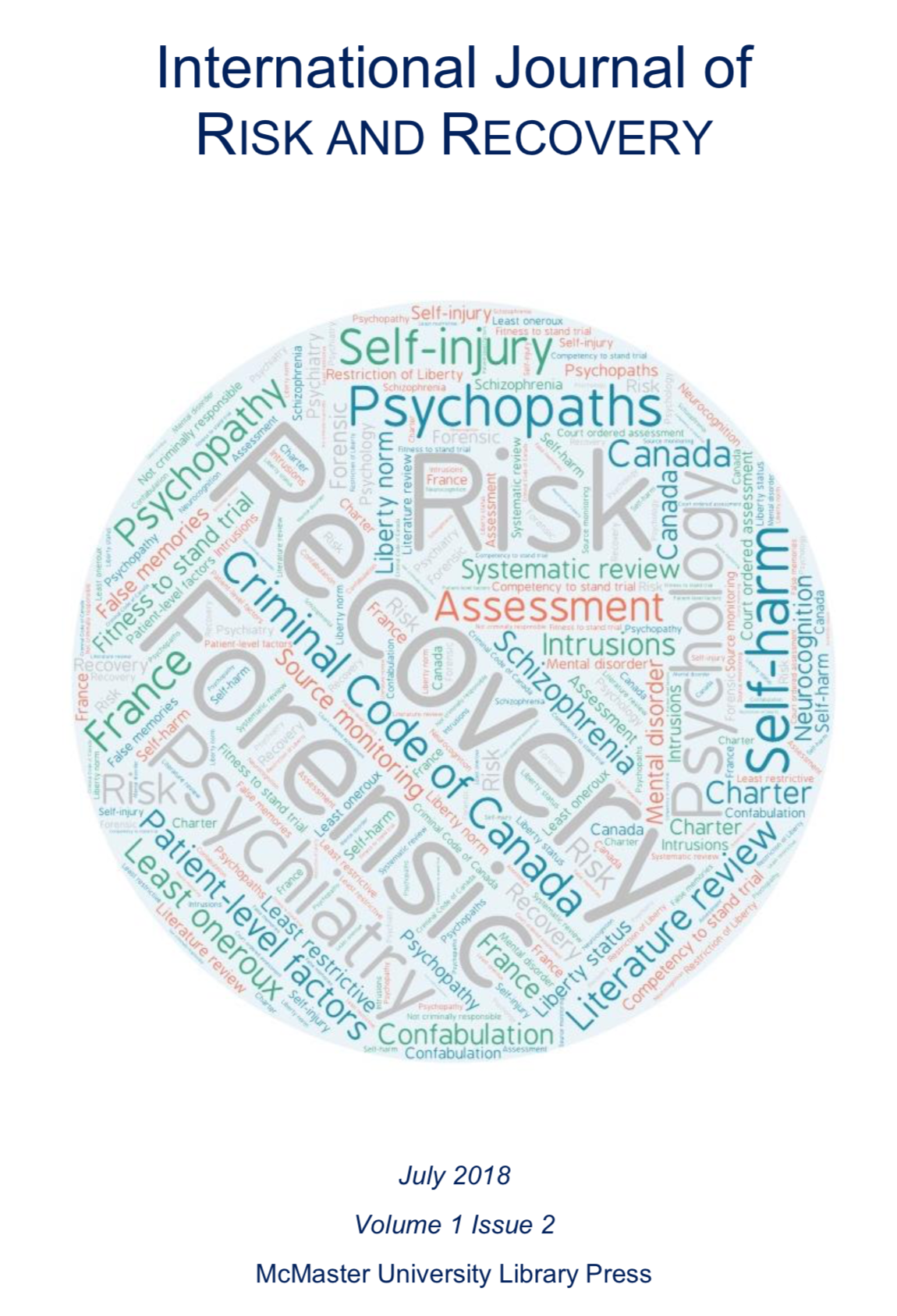Restriction of Liberties under the Ontario Review Board after (Re) Campbell
DOI:
https://doi.org/10.15173/ijrr.v1i2.3542Keywords:
Not criminally responsible, Mental disorder, NCRMD, Criminal Code, Restriction of Liberty, Least onerous, Least restrictive, Liberty norm, Lberty status, Charter, Re Campbell, Ontario Review Board, Review Board, ORB, CanadaAbstract
In Canada, Criminal Code Review Boards are established under Part XX.1 of the Criminal Code. The role of these independent tribunals is to make and review dispositions and decisions concerning persons found Not Criminally Responsible on Account of Mental Disorder or Unfit to Stand Trial. Under Part XX.1, there are certain provisions to protect the liberty interests of accused persons who remain under the authority of a provincial or territorial review board. These provisions trigger mandatory hearings before the Review Board. In (Re) Campbell, counsel for the accused argued before the Board that a transfer from one secure unit to a more secure unit required notice to the Board of a restriction of liberty and that the delay in notification resulted in a s. 7 Charter breach and that a s. 24(1) remedy was due. The Court of Appeal dismissed the appeal, confirming the Board’s decision that there was insufficient evidence regarding the accused’s liberty norm before the transfer and her liberty status after it to conclude that notice to the Board was required. Furthermore, the Court ruled that the transfer was the least onerous and least restrictive measure in the circumstances. The Campbell decision introduced an enhanced interpretation of the “significantly increasing the restrictions on the liberty of the accused” test by adopting a contextual approach which takes into consideration the accused’s liberty status before and after the decision to restrict the accused. Once a restriction is deemed to reach that threshold, the Board must determine whether the hospital’s measures were the least onerous and least restrictive in the circumstances. The Campbell decision will undoubtedly impact the way hospitals and review boards view restrictions of liberty, giving way to the potential for an increasing number of Chartercases argued on the grounds of alleged s. 7 violations.
References
Criminal Code (Canada), R.S.C., 1985, c. C-46. (accessed on May 16, 2018)
Mental Health Act (Ontario), RSO 1990, c M.7 (accessed on May 16, 2018)
R. Saikaley, 2012 ONSC 6794. (accessed on May 16, 2018)
Not Criminally Responsible Reform Act, SC 2014 c-6. (accessed on May 16, 2018)
Osawe (Re), 2015 ONCA 280. (accessed on May 16, 2018)
Ranieri (Re), 2015 ONCA 444. (accessed on May 16, 2018)
Young 2011(Re) 2011 ONCA 432. (accessed on May 16, 2018)
Campbell (Re), 2018 ONCA 140. (accessed on May 16, 2018)
Canadian Charter of Rights and Freedoms, 1982, R.S.C. 1985. (accessed on May 16, 2018)
R. v. Conway, 2010 SCC 22, [2010] 1 S.C.R. 765. (accessed on May 16, 2018)
Published
How to Cite
Issue
Section
License
Copyright Notice
Authors who publish with this journal agree to the following terms:
- Authors retain copyright of their work and grant the International Journal of Risk and Recovery the right of first publication with the work simultaneously licensed under a Creative Commons Attribution License. This allows others to share the work with an acknowledgement of the work’s authorship and initial publication in this journal.
- Authors are able to enter into separate, additional contractual arrangements for the non-exclusive distribution of the journal’s published version of the work (e.g., post it to an institutional repository or publish it in a book) with an acknowledgement of its initial publication in this journal.
- Authors are permitted and encouraged to post their work online (e.g., in institutional repositories or on their websites) before and during the submission process as it can lead to productive exchanges, as well as earlier and greater citation of published work. (See The Effect of Open Access.)

